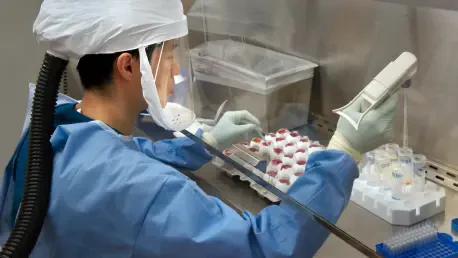
In recent years, the convergence of artificial intelligence (AI) and marine biology has opened new avenues for drug discovery, capturing the attention of the scientific community. At the heart of this novel approach lies the venom of the elusive cone snail—small, venomous marine mollusks found in c

In the rapidly advancing world of laboratory automation, Instromeda Ltd., an innovative small and medium-sized enterprise (SME), is making significant strides with its flagship product, the SPR Neo. At the forefront of automating complex biophysical analyses, the company is preparing to demonstrate

A revolutionary technology is capturing the attention of scientists and healthcare professionals worldwide. Developed by the University of Tokyo, this innovative approach offers a non-invasive way to monitor blood clotting in patients, primarily those with coronary artery disease (CAD). With heart

In the evolving landscape of clinical research, artificial intelligence (AI) has become an indispensable tool, yet the level of adoption and integration at clinical research sites remains inconsistent. AI's potential to enhance various aspects of clinical trials, from design to data

In recent years, the Asia-Pacific region has witnessed an extraordinary transformation in healthcare delivery driven by advances in artificial intelligence (AI). The adoption of telehealth services, augmented by AI technologies, is reshaping healthcare systems across diverse nations, effectively

Technology in healthcare is rapidly evolving, with groundbreaking innovations aiming to address major health issues. One remarkable development is an AI model named Foresight, pioneered by researchers at University College London (UCL). It utilizes de-identified medical records from 57 million NHS